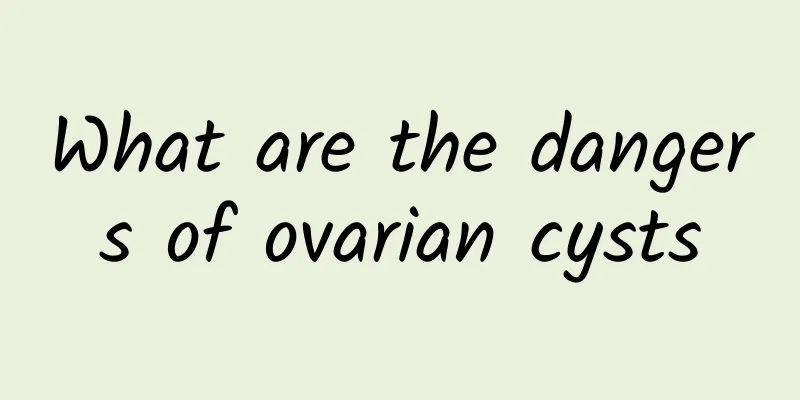What are the dangers of ovarian cysts

|
Ovarian cysts may cause reproductive health problems, discomfort symptoms, and even the risk of cancer, and need to be identified and properly treated as soon as possible. The hazards of ovarian cysts can be divided into three aspects: compression symptoms, reproductive effects, and malignant transformation. The specific situation needs to be judged according to the type and development of the cyst. It is recommended to seek medical attention in time for a clear diagnosis and choose appropriate treatment methods. 1Compression symptoms and complications Larger ovarian cysts may compress surrounding organs, causing uncomfortable symptoms such as abdominal distension, frequent urination, and constipation. Some cysts, such as congestive or inflammatory cysts, may also induce acute abdominal pain, severe discomfort, and even cyst rupture. In severe cases, it may cause ovarian torsion, hinder the normal blood supply to the ovaries, and cause damage to the reproductive organs. In treatment, ultrasound can be used to monitor the size and nature of the cyst. For larger simple cysts, laparoscopic surgery is a common option; if the patient's condition is not suitable for surgery, the doctor may recommend hormonal drug intervention. 2 Potential impact on fertility Ovarian cysts may hinder normal ovarian function, affect ovulation or fertilization, and cause fertility difficulties for some women. Especially corpus luteum cysts or polycystic ovary syndrome require special attention. For fertility problems, doctors may prescribe ovulation-inducing drugs, such as clomiphene, or recommend assisted reproductive technologies such as in vitro fertilization. 3 Risk of malignant transformation Certain types of ovarian cysts, such as complex cysts or cysts that increase in diameter rapidly, may have the potential risk of malignant transformation. If a cyst is diagnosed as cancer, early detection and intervention are essential. Patients with malignant cysts usually require further diagnosis, and treatment options include radical surgery, chemotherapy, or targeted drug therapy. For example, platinum chemotherapy drugs such as carboplatin are common in the treatment of certain ovarian cancers. Regardless of the specific cause, the harm of ovarian cysts cannot be ignored. If you feel abnormal abdominal pain or period disorders, you need to see a doctor as soon as possible and choose the appropriate treatment according to the doctor's advice. Pay attention to regular gynecological examinations so that you can better maintain your health. |
<<: Will uterine fibroids eat blood?
>>: What medicine can cure endometritis and pelvic inflammatory disease faster?
Recommend
How to take care of chronic cervicitis in women? This care is conducive to the recovery of patients with chronic cervicitis
Nowadays, chronic cervicitis is usually accompani...
Abortion surgery should prevent postoperative infection
Abortion surgery has certain risks. If the aborti...
What causes ectopic pregnancy?
Ectopic pregnancy is a very dangerous pregnancy, ...
What causes uterine cysts and what to do
The formation of uterine cysts is usually related...
What medicine should I take for constipation caused by uterine fibroids? What should I do if constipation is caused by uterine fibroids?
Uterine fibroids are benign tumors that occur in ...
Analysis of common treatment methods for cervical hypertrophy
There are many treatments for cervical hypertroph...
Adnexitis is very harmful to women.
Although most women have learned about adnexitis,...
What items should be checked for irregular menstruation
Irregular menstruation is a common physiological ...
Analysis of common symptoms of pelvic inflammatory disease in women
Pelvic inflammatory disease is a gynecological di...
Patients with cervicitis must take good treatment
Cervicitis is a common gynecological disease in m...
Will I have menstruation if I have an ectopic pregnancy?
Whether or not an ectopic pregnancy will cause me...
Women should know some common symptoms of uterine fibroids
Nowadays, women's reproductive health is an i...
How to get your period sooner
How can I get my period faster? If you want to ha...
What causes menstrual pain and fainting?
What is the cause of menstrual pain and fainting?...
Experts explain the causes of irregular menstruation
Irregular menstruation is a gynecological disease...









